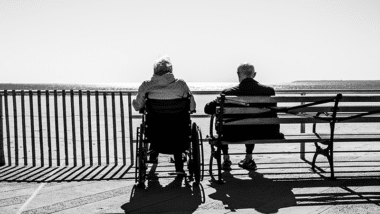Naïve support for a change in the law on assisted suicide is “flawed” and “dangerous”, an expert in palliative care has warned.
Dr Amy Profitt, former President of the Association for Palliative Medicine, told the Daily Mail that current proposals on assisted suicide in the UK contained too many “unknowns and questions” for the public to make an informed decision.
In August, the Law Society of Scotland identified “serious issues” with Liam McArthur’s Assisted Dying Bill in its response to Holyrood’s call for evidence on the MSP’s plans.
Vulnerabilities
Outlining her concerns, Dr Profitt said it appeared that “doctors working for the NHS – the same doctors whose job it is to protect the most sick and vulnerable – would be charged with helping many take their own lives”.
“Yet”, she explained, “none of us in the NHS is trained to spot whether someone is being coerced into ending their own life.
“Nor are we qualified to help those who want to end it all not because they are facing impending death but because they feel they are simply too much of a burden on society.”
Palliative care
Furthermore, she asked, “where would the deed be done? In NHS hospitals, where lives are meant to be saved not ended prematurely?
“Or in hospices that currently do such a great job of making those final days and weeks as comfortable as possible?”
She feared that “pumping money into assisted dying will mean that the NHS cuts back on cash for palliative care”, rather than focussing on improving it and extending its reach.
The experienced medic warned: “Assisted dying is not within a doctor’s duty of care.”
Terminal diagnosis
In a letter to The Times earlier this year, Michael Baum, Professor Emeritus of Surgery and visiting Professor of Medical Humanities at University College London, challenged the content of a Times’ article on euthanasia.
According to the story, a woman with cancer in New Zealand had reportedly “chosen to die under a law that allows competent adults to choose an assisted death if they have a terminal illness and less than six months to live”.
However, Prof Baum argued: “This line reinforces the myth that oncologists can estimate with any precision that a patient has only six months to live.” He explained that prognoses are based on averages, such that: “Half the patients may die within six months, but the other half may live much longer”.
He added: “A dear friend of mine died recently from pancreatic cancer and I was present at the time of his diagnosis. The average survival for this terrible disease is ten months but he lived for four years.”

The UK a ‘perfect storm’ for assisted suicide harms
CI warns against ‘hugely damaging’ Scots assisted suicide Bill
Times readers slam columnist Parris for pressuring elderly and infirm to kill themselves
Poll on assisted suicide reveals ‘stark judgements’ about vulnerable

